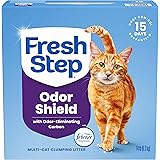Can I use dog dewormer on cats? It’s a question many pet owners might ask, especially if they have both cats and dogs at home. While it might seem convenient to use one product for both pets, it’s actually a risky move that can harm your cat. Dog dewormers are not made for cats—they have different ingredients, dosages, and purposes. Using a dog dewormer on a cat could lead to serious health issues, including toxicity or ineffective treatment. To keep your cat safe and healthy, it’s essential to understand why you should stick to dewormers specifically designed for felines.
The Importance of Deworming Cats
Cats, like many animals, are susceptible to internal parasites, commonly known as worms. These parasites can cause various health issues, ranging from mild discomfort to severe illness. The most common types of worms that affect cats include:
- Roundworms: These are the most common parasites in cats. They can cause vomiting, diarrhea, and weight loss.
- Tapeworms: Often transmitted by fleas, tapeworms can lead to an itchy rear end, weight loss, and vomiting.
- Hookworms: These worms can cause anemia, weight loss, and lethargy.
- Heartworms: Though more common in dogs, heartworms can also infect cats and cause serious respiratory problems.
Deworming your cat regularly is essential to prevent these parasites from causing harm. However, the dewormer you choose must be specifically formulated for cats.
Differences Between Dog and Cat Dewormers
You might wonder if you can use a dog dewormer on your cat, especially if you have both pets at home. The answer is a resounding no. Here’s why:
1. Species-Specific Formulation
Dog and cat dewormers are formulated differently. Cats have a unique metabolism, and their bodies process medications differently than dogs. Dewormers for dogs may contain ingredients that are safe for canines but toxic to felines. For instance, some dog dewormers contain ivermectin, a substance that can be deadly to cats in certain doses. Using a dog dewormer on a cat can result in severe toxicity, leading to symptoms like vomiting, diarrhea, lethargy, and even death.
2. Differences in Dosage
Another critical difference is dosage. The dosage for dewormers is typically based on the weight of the animal. Since cats are generally smaller than dogs, the dosage required is much lower. Administering a dog-sized dose of dewormer to a cat can lead to an overdose, which can be life-threatening. Even if the active ingredient is the same, the concentration and dosage must be appropriate for the cat’s size and species.
3. Targeted Parasites
Dog and cat dewormers may also target different types of parasites. The types of worms that commonly affect dogs can differ from those that affect cats. Using a dog dewormer on a cat may not effectively treat the specific type of worms your cat has, leaving the infection untreated and potentially worsening your cat’s health.
Risks of Using Dog Dewormer on Cats
Using dog dewormer on a cat is not only ineffective but also dangerous. Here are some of the risks involved:
1. Toxic Reactions
As mentioned earlier, many dog dewormers contain ingredients that are toxic to cats. These ingredients can cause severe reactions, including:
- Vomiting and Diarrhea: Common signs of toxicity in cats.
- Lethargy: A cat may become unusually tired or weak after exposure to a toxic substance.
- Seizures: In extreme cases, the wrong medication can cause seizures.
- Tremors: Shaking or tremors can also indicate toxicity.
- Loss of Appetite: A toxic reaction can cause a cat to stop eating, which can lead to further complications.
If you notice any of these symptoms after administering a dog dewormer to your cat, seek veterinary help immediately.
2. Ineffective Treatment
Even if a dog dewormer doesn’t cause an immediate toxic reaction, it may not effectively treat your cat’s parasite problem. As a result, the worms may continue to thrive, leading to ongoing health issues. Untreated worm infestations can cause severe weight loss, anemia, and damage to the cat’s internal organs.
3. Potential for Overdose
The dosage differences between dogs and cats are significant. Even a small overdose can be harmful to a cat. Overdosing on a dog dewormer can cause life-threatening symptoms, and emergency veterinary care may be required to save the cat’s life.
What to Do If You’ve Used Dog Dewormer on Your Cat
If you’ve accidentally given your cat a dog dewormer, it’s crucial to act quickly. Monitor your cat closely for any signs of toxicity, such as vomiting, diarrhea, lethargy, or seizures. Contact your veterinarian immediately if any of these symptoms occur. The vet may recommend bringing your cat in for an evaluation or administering activated charcoal to absorb the toxins.
In some cases, inducing vomiting may be necessary to remove the toxic substance from your cat’s system. However, this should only be done under the guidance of a veterinarian, as inducing vomiting can sometimes cause more harm than good.
Safe Deworming Practices for Cats
To ensure your cat stays healthy and free of parasites, follow these safe deworming practices:
1. Consult Your Veterinarian
Always consult your veterinarian before administering any dewormer to your cat. The vet can recommend a safe and effective dewormer based on your cat’s specific needs, including its age, weight, and overall health. Your vet can also perform tests to determine the type of parasite your cat has, ensuring that the treatment is targeted and effective.
2. Use Cat-Specific Dewormers
Only use dewormers that are specifically formulated for cats. These products are designed to be safe and effective for felines. They come in various forms, including tablets, liquids, and topical treatments. Your vet can guide you on the best option for your cat and how to administer it correctly.
3. Follow Dosage Instructions Carefully
It’s essential to follow the dosage instructions provided on the dewormer packaging or by your veterinarian. Never guess the dosage, as giving too much or too little can be harmful. If you’re unsure about the correct dosage, consult your vet for clarification.
4. Keep a Regular Deworming Schedule
Establishing a regular deworming schedule is crucial to keeping your cat free from parasites. The frequency of deworming depends on your cat’s lifestyle. For example, outdoor cats that hunt and are more likely to come into contact with parasites may need to be dewormed more frequently than indoor cats. Your veterinarian can help you determine the best schedule for your cat.
5. Monitor Your Cat’s Health
After administering a dewormer, monitor your cat’s health for any signs of an adverse reaction. Watch for symptoms such as vomiting, diarrhea, or changes in behavior. If you notice any ongoing symptoms of parasitic infection, such as weight loss or a dull coat, consult your vet. They may need to adjust the treatment plan.
Alternative Solutions for Deworming Cats
While traditional dewormers are the most effective way to treat parasitic infections, some cat owners prefer alternative methods. Here are a few options:
1. Natural Dewormers
Some natural remedies are believed to help control worm infestations in cats. These include:
- Pumpkin Seeds: Contain an amino acid called cucurbitacin, which is thought to paralyze worms, making them easier to expel from the body.
- Carrots: Can help scrape worms out of the cat’s digestive tract.
- Coconut: Some believe that feeding coconut oil can help remove worms.
While these natural remedies may offer some benefits, they should not replace traditional dewormers. Always consult your veterinarian before using any natural treatment to ensure it is safe and effective for your cat.
2. Prescription Dewormers
In some cases, your veterinarian may prescribe a stronger, more targeted dewormer. Prescription dewormers are often more potent than over-the-counter options and may be necessary if your cat has a severe infestation. These medications are designed to be safe and effective for cats, targeting the specific type of worm your cat has.
3. Preventative Measures
Preventing parasitic infections is the best approach. Here are some preventative measures to consider:
- Keep Your Cat Indoors: Indoor cats are less likely to come into contact with parasites than outdoor cats.
- Regular Vet Check-ups: Routine veterinary visits can help catch parasitic infections early before they become severe.
- Flea Control: Since fleas can transmit tapeworms, keeping your cat flea-free is crucial.
- Clean Environment: Regularly clean your cat’s litter box and living area to reduce the risk of infection.
When to Seek Veterinary Help
Even with the best preventative care, there may be times when your cat needs veterinary attention for a parasitic infection. Knowing when to seek help is essential for your cat’s health.
1. Persistent Symptoms
If your cat continues to show symptoms of a parasitic infection even after treatment, it’s time to consult your vet. Persistent vomiting, diarrhea, weight loss, or lethargy can indicate that the treatment was ineffective or that there is a more severe underlying issue.
2. Severe Reactions
If your cat has a severe reaction to a dewormer, such as seizures or extreme lethargy, seek veterinary help immediately. These symptoms can indicate a toxic reaction, which may require emergency treatment.
3. Routine Check-ups
Regular veterinary check-ups can help catch parasitic infections before they become severe. Your vet can perform fecal tests to check for worms and recommend a deworming schedule based on your cat’s lifestyle and health.
By following these guidelines, you can ensure that your cat stays healthy, happy, and free of harmful parasites. Remember, always consult your veterinarian before administering any medication, and never use dog dewormer on cats.
































































